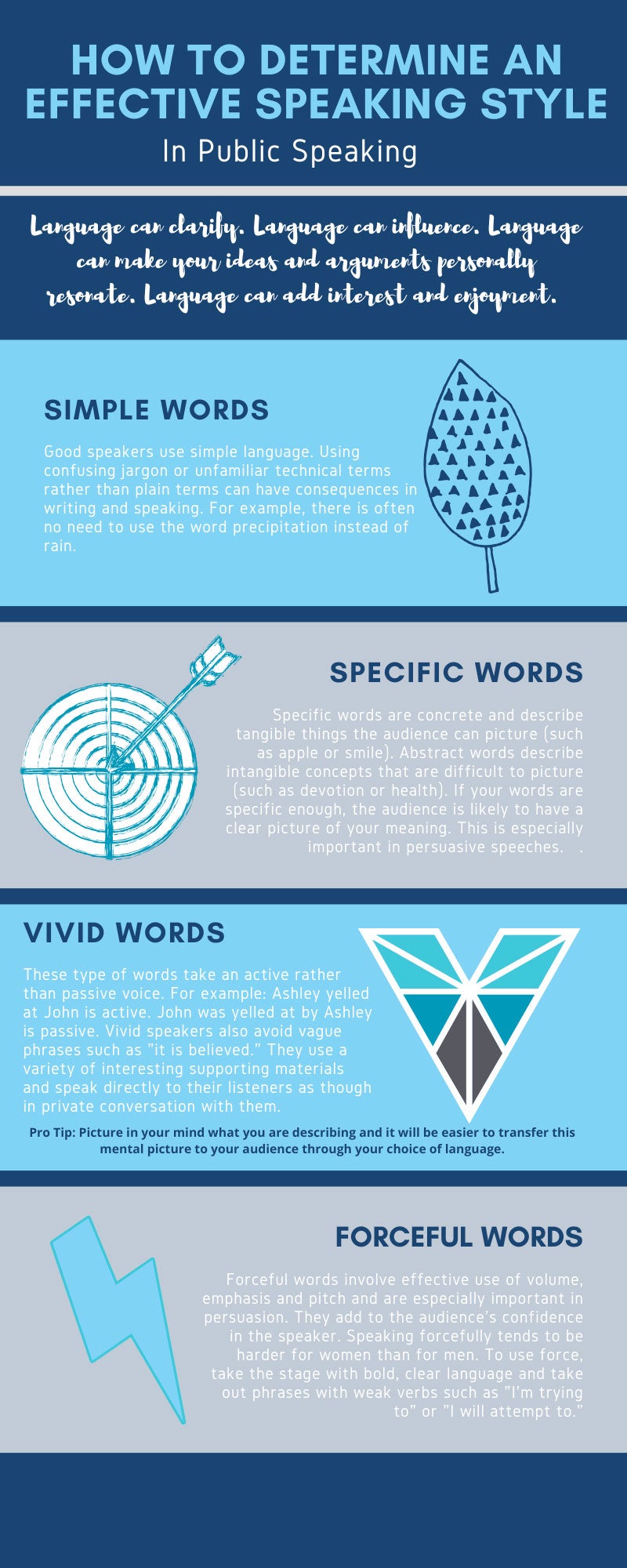WHY WORD CHOICE IS IMPORTANT
HOW TO DETERMINE AN EFFECTIVE SPEAKING STYLE
SIMPLE WORDS
Good speakers use simple language. Using confusing jargon or unfamiliar technical term rather than plain terms can have consequences in writing and speaking. For example, there is no need to use the word precipitation instead rain.
SPECIFIC WORDS
Specific words are concrete and describe tangible things the audience can picture (such as apple or smile). Abstract words describe intangible concepts that are difficult to picture (such as devotion or health). If your words are specific enough, the audience is likely to have a clear picture of your meaning. This is especially important in persuasive speeches.
VIVID WORDS
These type of words take an active rather than passive voice. For example: Ashley yelled at John is active. John was yelled at by Ashley is passive. Vivid speakers also avoid vague phrases such as “it is believed.” They use a variety of interesting supporting materials and speak directly to their listeners as though in private conversation with them.
Pro Tip: Picture in your mind what you are describing and it will be easier to transfer this mental picture to your audience through your choice of language.
FORCEFUL WORDS
Forceful words involve effective use of volume, emphasis and pitch and are especially important in persuasion. They add to the audience’s confidence in the speaker. Speaking forcefully tends to be harder for women than for men. To use force, take the stage with bold, clear language and take out phrases with weak verbs such as “I’m trying to” or “I will attempt to.”
FOR MORE INFORMATION: COME VISIT US AT THE CENTER FOR COMMUNICATION EXCELLENCE
MAIN CAMPUS:
205 JOYNER EAST / PHONE: 252-328-2790

